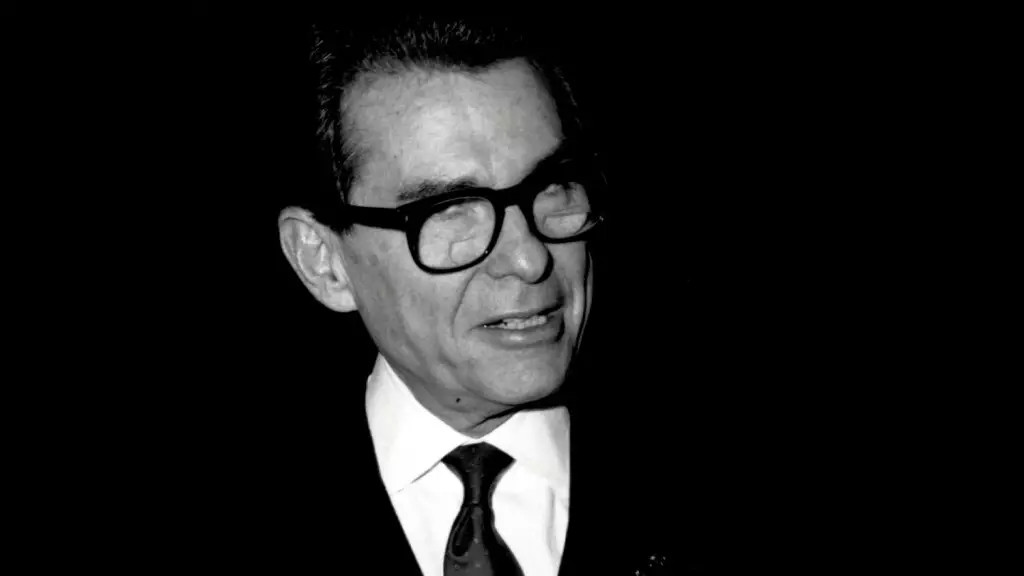The entertainment world has bid farewell to a stalwart figure with the recent passing of Richard Kahn. A former president of the Academy of Motion Picture Arts and Sciences, Kahn’s death at the age of 95 has not only marked the end of an era but has underscored the significant role he played in the evolution of the film industry. His tenure spanned over six decades, during which he made notable contributions that transcended marketing strategies and publicity stunts; he was a craftsman of culture, shaping modern cinematic traditions that are still prevalent today.
What does it mean to leave an indelible mark, one may ponder? For Kahn, it manifested in initiatives like the Academy’s Nominees Luncheon, a gathering that transformed how we celebrate the arts and connect filmmakers with each other. It was a humble yet impactful approach that emphasized camaraderie over competition, showcasing his belief in the artistry behind filmmaking. CEOs and presidents come and go, but Kahn’s vision was rooted in the idea that the film community thrives on collaboration. This sentiment raises the question of whether modern organizations fully embrace this ethos or are merely preoccupied with profit margins and box office numbers.
A Legacy Built on Relationships
Kahn’s long-standing affiliation with the Academy and his various roles illustrate a life dedicated not just to films, but the people who create them. His commitment to fostering relationships and building connections is evidenced by his initiation of global member receptions, which now invite diverse voices into the conversation. While it’s easy to overlook such gatherings as mere formalities, they embody Kahn’s understanding that networking in the arts isn’t just about climbing the ladder; it’s about lifting each other up in an industry that can often feel isolating.
In an age where the algorithms of social media dictate our interactions, Kahn’s style of engaging openly and authentically bears a powerful juxtaposition. As our communication becomes increasingly transactional, with likes and shares replacing real connections, could we learn a thing or two from Kahn’s legacy? Rethinking our interactions might compel the industry to look beyond the superficial and rediscover the camaraderie that lies at its heart.
The Craft of Storytelling
Kahn’s impact transcended his academic credentials and military service. The films he marketed — classics like “Lawrence of Arabia” and “Funny Girl” — were not merely products; they were narratives that resonated with audiences. His unique ability to blend creativity with strategy opened doors to innovative marketing paradigms that became industry standards. Yet, while he was known as a marketing maestro, this title only scratches the surface of his contributions.
He embodied the belief that storytelling goes beyond the screen; it extends into how films are presented to the world. One can only admire the nuance of an individual who understood the power of a well-placed trailer, compelling press kits, and engaging premieres. In today’s world of relentless streaming content, where immediate consumption trumps long-term engagement, how many executives have this same thoughtfulness about their craft? Kahn’s legacy serves as a reminder of the care that should go into nurturing films from conception to audience reception.
A Human Touch in a Digital World
As Richard’s family articulated in their heartfelt statement, he was not only a pivotal figure in the film industry but also a loving father and human being. His humor and kindness resonated deeply with those who knew him and those who felt his influence from afar. In our fast-paced world, where icons can often feel more like brands than actual people, Kahn’s genuine personality is a refreshing contrast. It begs the question: Can the industry reinvest in the notion that behind every movie is a team of real people striving for their dreams?
In a time when the industry often gets caught in the crossfire of politics and social movements, Kahn noted the importance of sustaining the core values at the heart of filmmaking — empathy, creativity, and collaboration. The outpouring of grief from community members displays the profound impact he had on so many lives. His imprint provides fertile ground for discussion in a time marked by division and skepticism. Engaging with his legacy compels an exploration of the broader implications of leadership in the arts, a role that extends far beyond simply managing an organization.
Richard Kahn may have transcended into the annals of film history, yet his legacy lingers on as a testament to what it means to be truly invested in the craft and the community. In reflecting on his life, the industry has an opportunity to recommit to a culture that embraces the human connections that underpin the very art of storytelling.


Leave a Reply